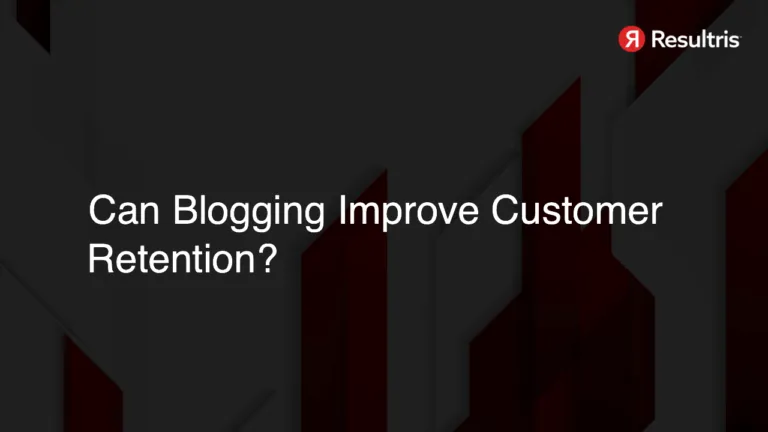Blogging is a powerful tool for businesses as it helps to establish your brand authority, drive organic traffic to your website, and create customer engagement. By sharing valuable content that is relevant to your target audience, you can demonstrate your expertise, promote your products or services, and strengthen your online presence – making your business more appealing, competitive, and visible to prospective customers.
Enhancing Brand Authority
Blogging enables your business to showcase its expertise in the industry, leading to a boosted brand reputation, credibility, and trustworthiness.
Consistently sharing high-quality, informative content will position your company as an authority, attracting more potential customers.
Driving Organic Traffic
Well-crafted, keyword-focused blog posts naturally improve your website’s search engine rankings, resulting in more organic traffic.
Search engines such as Google appreciate and reward fresh, valuable content – ultimately increasing your website’s visibility to your target audience.
Fostering Customer Engagement
Blogging allows businesses to communicate with their audience and establish an emotional connection. Sharing insightful tips, advice, and updates gives customers a reason to visit your website regularly.
Encouraging feedback, questions, and comments on your blog posts fosters dialogue and increases customer engagement.
Boosting Lead Generation
By blogging about industry-specific topics that resonate with your audience, readers are more likely to convert into leads.
A call-to-action placed strategically within your blog content invites visitors to sign up for newsletters, download ebooks, or request information about your products or services, ultimately generating new leads for your business.
When it comes to blogging for business, it’s crucial to get it right the first time. Don’t risk missing the mark. Professional blog writing services like Resultris can steer you in the right direction, saving you valuable time and effort.
Integrating Social Media Marketing
Sharing blog content on various social media platforms helps extend your brand’s reach and engages a wider audience.
By providing shareable content through blogging, you encourage users to share your posts with their own networks, leading to increased brand exposure and driving traffic back to your website.
Staying Ahead of Competitors
Businesses that actively maintain a blog set themselves apart from their competitors.
It showcases proactive industry thought leadership, enhances customer service, and reinforces the fact that your business continually evolves to keep up with trends and customer needs.
Establishing Thought Leadership
Beyond showcasing expertise, blogging creates opportunities for your business to be acknowledged as an industry thought leader.
Sharing thought-provoking, innovative ideas and offering unique perspectives on current trends not only challenges the status quo but also proves that your business is ahead of the curve.
Supporting Content Marketing Strategy
Blogging forms the backbone of any successful content marketing strategy. By creating a wealth of blog content, you have an invaluable resource for repurposing in various formats such as videos, podcasts, eBooks, and infographics.
This cross-channel approach maximizes the return on your content creation efforts, ensuring no valuable asset is overlooked or wasted.
Attracting Backlinks
Creating informative, high-quality blog content encourages other websites to link back to your articles. These backlinks are invaluable for your website’s search engine ranking and overall online reputation.
A strong backlink profile not only boosts your website’s authority but also helps expose your brand to new potential customers.
Improving Website Metrics
Regularly publishing valuable content through blogging can positively impact key website metrics such as bounce rate, time on site, and overall user engagement.
As your blog attracts visitors, your website’s performance and position within search engine results pages will improve. This, in turn, leads to better customer experience and increased conversions.
FAQs About Business Blogging
Here are some frequently asked questions related to business blogging that can help you better understand its benefits and decide whether it’s the right strategy for your company.
How often should my business publish blog posts?
There is no one-size-fits-all answer to this question, but a good rule of thumb is to publish new blog posts at least once or twice a week.
Consistent blogging helps maintain audience engagement and support SEO efforts. However, always prioritize quality over quantity.
What topics should my business blog about?
Focus on topics that are relevant to your target audience, reflect your brand values, and showcase your expertise.
Consider customer pain points, industry trends, and customer success stories.
You can also share company updates, product announcements, and event recaps to engage your audience.
How can my business find the right keywords for our blog posts?
Use keyword research tools such as Google Keyword Planner, SEMrush or Ahrefs to identify popular search terms related to your industry.
This helps you understand what your target audience is searching for and enables you to create content that matches their intent, driving organic traffic to your website.
How long should my business blog posts be?
The ideal length for a blog post varies depending on its topic, complexity, and target audience.
While longer articles (1,200 to 2,000 words) are typically more informative and can result in better search engine rankings, it’s important to use the length needed to fully explore and present the topic in a clear and engaging manner.
How can my business measure the success of our blog?
Monitor key metrics such as organic traffic, time on site, number of backlinks, and the conversion rate of your blog posts.
Analyzing these data points helps you assess your blog’s performance, identify areas of improvement, and fine-tune your blogging strategy for maximum impact.






